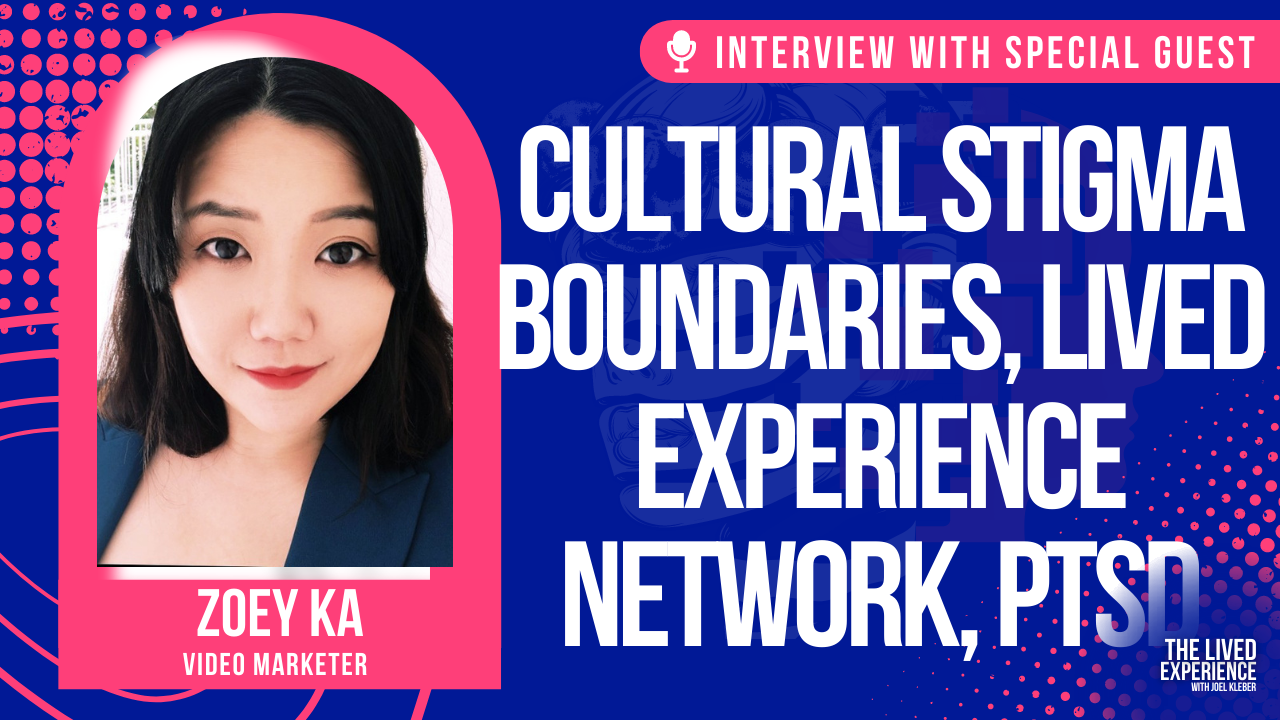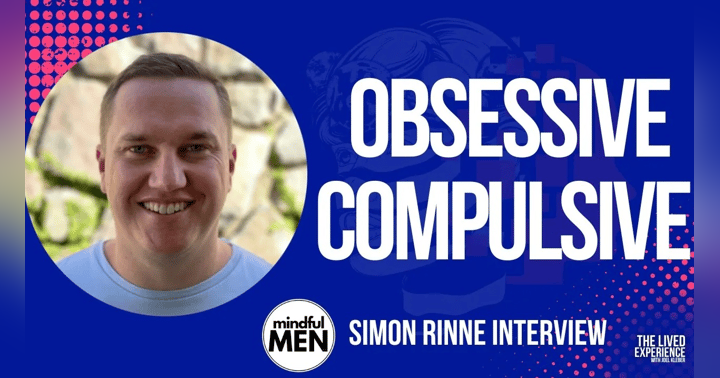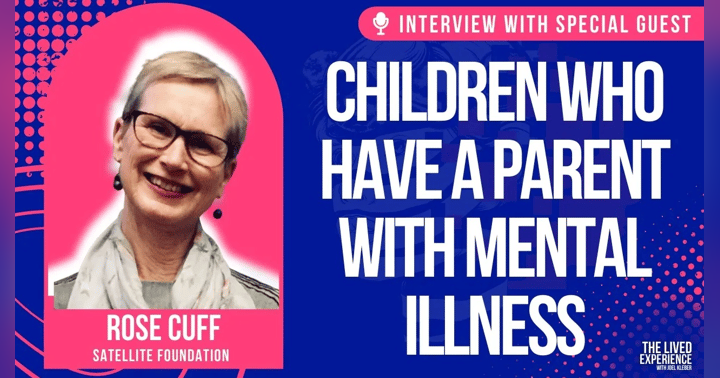Interview with Zoey Ka from Mental Illness Fellowship of Australia

Interview with Zoey Ka from Mental Illness Fellowship of Australia
Zoey Ka is an Asian Australian working as the Project Lead at Mental Illness Fellowship Australia. She’s a qualified Change Practitioner and has completed her studies in Business Administration and Global Project Management. She has experience in career coaching, education, project management and change management.
Zoey is an authentic and vulnerable individual who is passionate and committed to supporting the voices of lived experience. She strives to create safe enough spaces for everyone to talk about mental health in everyday life, ignite hope and inspire people who struggle with intersectional identity in Australia to live a mentally healthier life.
She is well-versed in project management, change management, relationship building and operations. She specializes in bridging the gap between strategic and operational objectives and initiating sustainable and continuous improvement processes.
Outside of work, she is passionate about advocating for Asian Australians, intersectionality, mental health, and anything to do with positive intelligence, emotional science, positive psychology, and vulnerability.
JOEL: What is the program of mental illness fellowship of Australia?
ZOEY: It's not a program per se. The platform really is for people who've already been on the journey to healing and are looking for opportunities to use their lived experience—either to give back or use it in a leadership forum, whether it is leading in their own time.
Basically, it's like a private Facebook; you can join it on an app, you can download it, you just need to complete a form, and you'll be able to go in. Now once you've gone into the platform, all the app, basically, you can start sharing your ideas, anything you want to discuss, in particular about, for example, the lived experience workforce that's currently going on, the movement P work.
If you're studying psychology and you want to get to know more about it. I've personally just recently identified as someone with a lived experience.
So, for me personally, I've been using this platform to really talk through the stigma that I feel and the challenges that I go through as someone that identifies with and as an Australian between culture.
How did you get involved?
I have not been in lived experience or really talked about my mental health my entire life. And I've been working as a career coach and within the higher ed sector.
And during COVID, my partner was made redundant, unfortunately.
He was a chef and in HR in hotels. So, at the end, I think at the end of 2019-2020, COVID has got me messed up in years.
But at the end of 2020, I decided that we wanted to move up to Brisbane, I'm a Sydney sider born and bred, and we decided that we wanted a different lifestyle, and this actual opportunity came up called lived experience project officer. And I thought, “oh, you know, I don't have any experience within mental health, but I am a Project Management Professional”.
So, with self-stigma, I'm like, “I don't think I can do this, they'll never consider me”. And my partner always gave me that extra strength and I gave them a call. They strongly encouraged me to apply. And here I am, just over a year later.
What I found was interesting was even within the job application, they asked for, they said, “you know, mental health industry experience highly regarded”. But it turned out to be my strength. And we, within my organization, my FAR, they really consider that as a strength now, because I'm not in doctrinated in the industry, I don't talk like them, I don't talk about the concepts like the people who have worked within that workforce for a very long time.
Sometimes it can be a little bit challenging, but I'm also trying to keep the hat on as just a normal human being in this world without being inside the actual sector.
What's your lived experience with mental health?
My lived experience is very long, but I would say that I'm a suicide survivor. I'm a recovering perfectionist; I have been diagnosed with depression and anxiety the whole lot.
But what I've really noticed is the conversation about complex PTSD nowadays and childhood emotional neglect as well.
As someone that is Australian-born Chinese, and Hong Kong, I really struggled with my identity. I was never Chinese enough, but I wasn’t in Hong Kong enough, and then I wasn't Ozzie enough.
A lot of childhood emotional neglect and trauma has really given. Had a lot of challenges when I grew up and now, I'm through my healing phase where I really want to see and understand.
During COVID, when you go through these, big experiences that is affecting their entire world, you really question. Well, I personally started questioning, is this really what I want to do?
And I just realized that my lived experience has always helped me to connect with other people, even though I never directly talked about my mental ill health or the challenges. And I really wanted to explore that side. And here I am.
What's been done for the race and multiculturalism with mental health?
There are a lot of organizations that are currently trying to contribute to the gap that you're currently taught. There's multicultural Australia, there's the Embrace project by Mental Health Australia, and everyone's actively trying to assist in that.
I think the biggest issue is that there is a big gap in terms of the mental health support that we have in Australia. And there's so many resources that we have. So, we can only do so much. Everyone is just trying their best with the resources that they must do what they can do best at this moment.
I don't think that there's enough being done. We need to understand. I personally need to accept that we can only do one thing at a time with the resources that we have, and I'm passionate about, especially Australia and between cultures—because everyone has challenges, whether it is First Nations, whether it is people coming from the war.
I personally identify with the challenges specifically to an Australian between culture. So that's why I want to talk about this issue, and I want to hopefully contribute as much as I can and talking about this issue.
What advice will you give if someone wants to get some help?
Well, I'm not sure that a psychologist is the right type of professional for everybody. There are lots of other professionals out there such as P workers, psychics, coaches, recovery coaches, etc.
So, I think the first thing that anyone who wants to get help is to do some research about the types of professionals out there—a psychologist is the first one we always think about, because when you go to a GP, or even the hospital or anything, the first type of professional they refer you to as a psychologist or a psychiatrist.
There are a lot of other people who can support you through this journey. And I think that is the biggest gap within Australia is that if you are depressed or if something is going wrong, or something's not right, and you go to a GP, they just send you to a psychologist.
The issue is that within the GP space, they are only referred to the psychologists and they don’t really know what else there is available, what type of other support there is, within psychologists—maybe you're feeling a bit down, but you don't need a psychologist, you need to learn some strategies.
For example, cognitive behavioral therapy, whether it's acceptance, commitment therapy. These are things that someone with some mild symptoms can learn with a bit of support on the side.
Are there any low-cost solutions that you can recommend?
I recommend going through the process of getting a GP and mental health plan and getting professional help.
If you're someone that's within that languishing mode now—which everybody is in because everyone's feeling very mirth.
The first thing is, I guess, identifying what the things are you can and can't control. And then, I'll have to identify what's my actual stressor? If my stressor is work—okay, I can't quit my job, because I'm feeling stressed, because I need money.
But there are a lot of things about the stressor that you can't control. But I can control the stress within my body.
What are some good weights for me personally that helps me, it's going out for walks—even though I don't want to move.
Going out the wall or getting a bit of sun. Depending on the level of my angst. I'll choose between things like meditation, breathing exercises, but I must say, when I'm very, very anxious, they don't work. And you know what I do, I pump up Duff, Duff music, like rave music, hardcore music, and go boxing, for example. Because the level of my angst and the level of my activity to help me needs to match.
So, it's important for all of us to identify what's our stress? And what's our stressor? And which one can we control the best that we can. I'm not saying that it'll fix things, but or at least help you regulate a little bit of what you're feeling.
Does the last couple of years with what's going on affects your child or children in general?
What's going on with normal teenage prom limbs plus the internet, it's crazy. When I was going through the teenage years, I was probably one of the only ones that was self-harming, and had a lot of challenges, there's always a few.
Because every generation, we all have a few there. But I would say most of my class and my gear, and people around me, were quite happy, people were still running around, going out after school, and doing a lot of social activities and things like that.
And I think that really contributes to what's happening because people have time to develop these relationships. What I found with my daughter and her environment is the inability to build deep and meaningful conversations and connections, they prefer to go on the internet and talk to strangers, because if something happens, they just delete them. And they can't be judged.
When we're in Sydney, she was in a girl school—I won't name what school—she ended up being in a class where 50% of them were crying every day, due to some family issues, self-harming, suicide attempts, etc.
And my daughter—who was normally quite a murse, student of person, as she likes to say—ended up anxious and was just miserable, to a point where I took her to see her brain coach, and then it was very hard for her to open up to a brain coach.
She refused to see someone from school—even though there's school counselors—because it was stigmatizing for her, she didn't want to be judged. So, I took her privately to see someone and it took at least three months for her to open up to her brain coach, even then I still feel like she had a wall.
But she had to learn that other people, emotions and what other people do. It's not, she can't control it, if her friend wants to self-harm and things like that. And she feels awful that she couldn't do enough. It's not her fault. And I think that's the mental health in young people nowadays. It's talked about a lot, but there's just not enough done.
How's your life now compared to what it was a couple of years ago?
When I started my career, and I felt so much of being a high achiever being perfectionist, and everything—everyone loved me—people love me because I was so awesome at my job. And that became my identity. That was my self-assurance.
For that I belong in this world. I'm doing something good in this world. And so, I latched on to it for a very long time. But I didn't notice that when I latched on to that and just focused on work that I was taking away.
What I was missing out on was my daughter. When I came home as a single mother, I didn't have the patience to listen to whatever happened as a young one. I'd get frustrated when she made mistakes—which what didn't do things for a seven-year-old—and I noticed that that is not right. I had to really take a step back.
And this is one session I did particularly with my psychologist many years ago—is what are my values? And what are my priorities. And when push comes to shove, I chose my family instead of my career. It was always family first, and then Korea second.
But every single decision I made was saying the opposite—how scary is that?
And having to really make be conscious about making that decision. Every time I didn't take a day off because I didn't want to be seen as a legacy person and missing my daughter's concerts and things like that. I was putting an emphasis that I'm not making the right choice. And that made me even less confident because I didn't trust myself anymore.
I already struggled with self-love, self-compassion, and self-trust. But every day I did that I felt guilty as a mother, and I had to make really conscious decisions of really changing that lifestyle.
Big thank you to Zoey for sharing her story and you can listen to the full podcast here.










